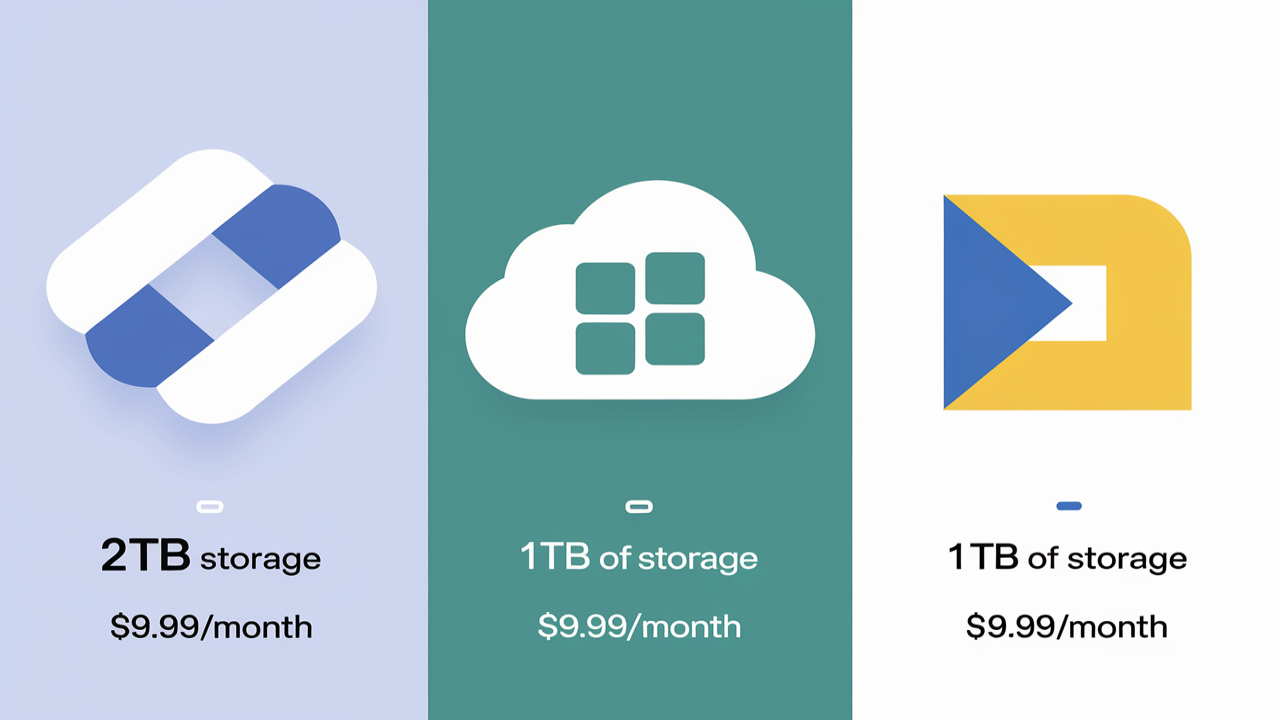In today’s increasingly digital world, cloud storage has emerged as an essential tool for businesses of all sizes. With cloud storage, businesses can access their files from any location, collaborate in real-time, and scale their storage needs as their company grows. However, as with any technology, cloud storage comes with both advantages and disadvantages that businesses must consider before fully committing to it.
In this article, we explore the pros and cons of using cloud storage for your business files, diving deep into how it can benefit or hinder your operations. By the end of this, you will be better equipped to decide if cloud storage is the right fit for your business.
Pros of Using Cloud Storage for Business Files
1. Scalability and Flexibility
One of the primary advantages of cloud storage is its scalability. Traditional storage methods require businesses to predict their storage needs well in advance. However, with cloud storage, businesses can easily increase or decrease their storage capacity based on current demands. This flexibility ensures that businesses are only paying for the storage they need, without being burdened by unnecessary costs.
For growing companies, this is especially valuable. As a company expands, the need for more storage becomes inevitable. With cloud storage, scaling up is as simple as selecting a new plan. This ability to adjust storage space based on changing requirements provides businesses with the flexibility to adapt without costly infrastructure investments.
2. Remote Access and Collaboration
Another significant benefit is the ability to access files from anywhere with an internet connection. This is crucial for companies with remote teams or multiple offices spread across different regions. Cloud storage enables employees to work together in real-time, improving productivity and collaboration.
With traditional storage methods, sharing files often involves cumbersome email chains or physical drives. Cloud storage simplifies the process by allowing multiple users to access, edit, and share files seamlessly from any location. This ensures that team members have access to the most updated version of a file, reducing the risks of errors and inconsistencies.
3. Cost-Efficiency
Cloud storage offers a cost-efficient solution for businesses. There is no need for purchasing and maintaining expensive hardware or dedicating physical space for on-site storage systems. With cloud storage, businesses pay for the service and storage they require, which can result in significant cost savings, especially for small and medium-sized enterprises (SMEs).
In addition to saving on physical hardware costs, businesses can also reduce their spending on IT staff and support. Cloud service providers typically handle all maintenance, upgrades, and troubleshooting, reducing the need for in-house technical teams.
4. Data Security and Backup
One of the biggest concerns for businesses is data security. Leading cloud storage providers employ advanced security measures, such as encryption, to protect sensitive business data from unauthorized access. In many cases, these measures are more robust than those employed by businesses with on-premise storage systems.
Additionally, cloud storage providers usually offer automatic backup services. This ensures that data is regularly backed up and protected from unexpected events, such as hardware failures, natural disasters, or cyber-attacks. For businesses that cannot afford to lose crucial data, these automatic backup systems provide peace of mind.
5. Disaster Recovery
In the event of a disaster, such as fire, theft, or technical failure, retrieving on-site stored data can be a nightmare. With cloud storage, businesses benefit from automatic disaster recovery solutions. Cloud providers often store copies of your data in multiple locations, ensuring that your files are safe even if one data center goes offline. This added layer of protection can be invaluable for businesses that require high data availability and resilience.
Cons of Using Cloud Storage for Business Files
1. Dependence on Internet Connectivity
While cloud storage offers remote access, it also comes with a significant drawback: businesses are entirely dependent on a stable and fast internet connection. Without reliable internet access, employees may find it difficult or impossible to retrieve or upload essential business files.
For businesses in locations with poor internet infrastructure, this can be a considerable disadvantage. Moreover, during outages or slowdowns, productivity can be heavily impacted. Having contingency plans, such as local backups, can help mitigate this risk.
2. Ongoing Costs
While cloud storage is cost-efficient for many businesses, it is not without its ongoing costs. Subscription fees for cloud storage can add up over time, especially for companies with high storage needs. Unlike a one-time purchase of physical storage hardware, cloud storage requires continuous payment.
As a business grows and its storage requirements increase, the associated costs of cloud services may escalate. It’s essential for companies to evaluate their budget and forecast long-term storage needs to avoid unexpectedly high expenses.
3. Data Privacy and Compliance Concerns
For businesses handling sensitive information, especially in regulated industries like healthcare or finance, cloud storage may present privacy and compliance concerns. Not all cloud storage providers are compliant with specific industry regulations, such as HIPAA or GDPR.
Businesses must carefully vet cloud providers to ensure they meet the necessary data protection regulations. Moreover, companies should consider where their data is being stored, as different countries have varying data protection laws that may impact how and where sensitive business data is stored and accessed.
4. Limited Control
Cloud storage often involves relinquishing some control over data management to third-party providers. While many providers offer customizable plans, businesses may still find themselves constrained by the provider's platform and storage features. For businesses with specific or complex needs, these limitations can be frustrating.
Additionally, some providers may impose restrictions on file types, sizes, or bandwidth usage, which could hamper a company’s ability to operate smoothly. It’s essential to review the terms of service carefully to ensure the provider meets the business’s operational requirements.
5. Security Vulnerabilities
While most cloud providers offer top-notch security, businesses should remember that no system is entirely immune to breaches. Storing business-critical data in the cloud exposes companies to potential risks, such as data breaches or hacking attempts. Even with encryption and other security protocols, sensitive data stored in the cloud can be targeted by cybercriminals.
It's essential for businesses to employ strong internal security practices alongside their cloud storage solutions. This includes using multi-factor authentication, encrypting data before uploading it to the cloud, and regularly auditing access permissions.
Conclusion
Cloud storage offers undeniable benefits for businesses, including flexibility, cost savings, and enhanced collaboration. However, it also comes with its own set of challenges, particularly in terms of data privacy, ongoing costs, and security risks. Businesses must weigh these pros and cons carefully when deciding if cloud storage is the right solution for their file management needs.
By understanding the potential advantages and drawbacks, businesses can make informed decisions, choosing the best solution that aligns with their operational goals and priorities.






Comments (0)